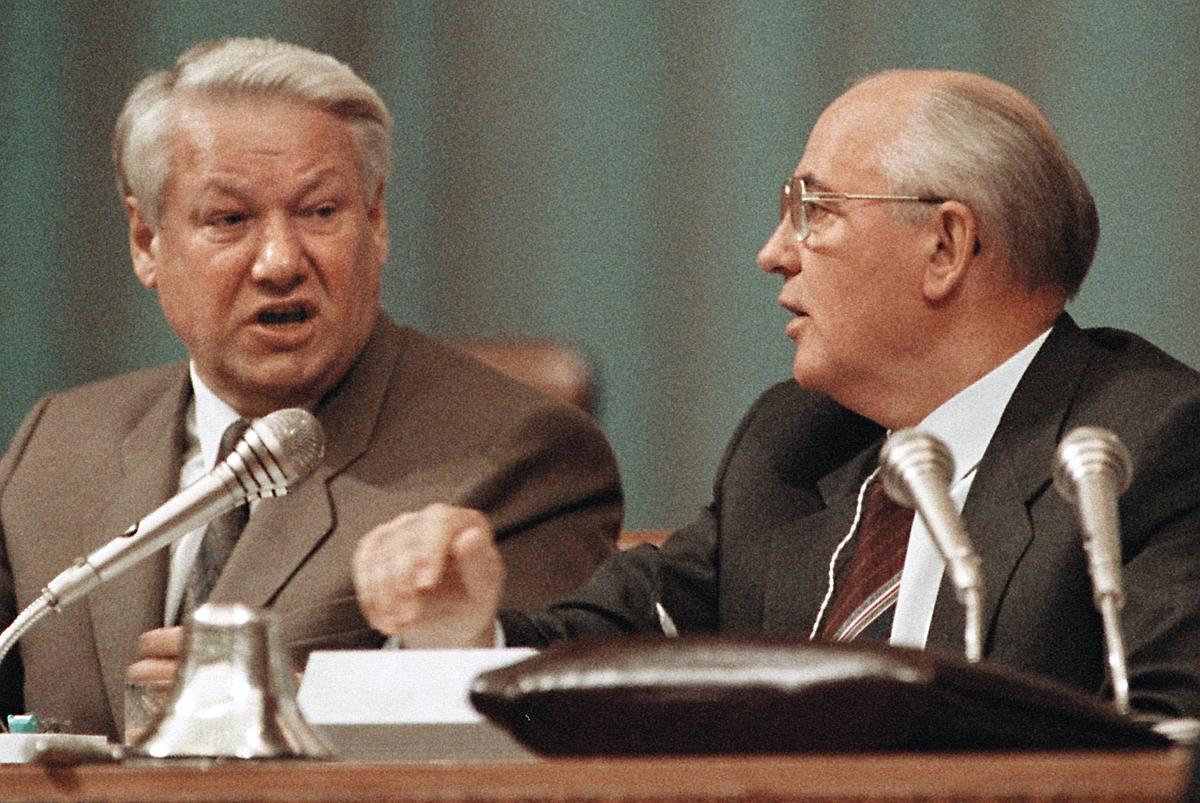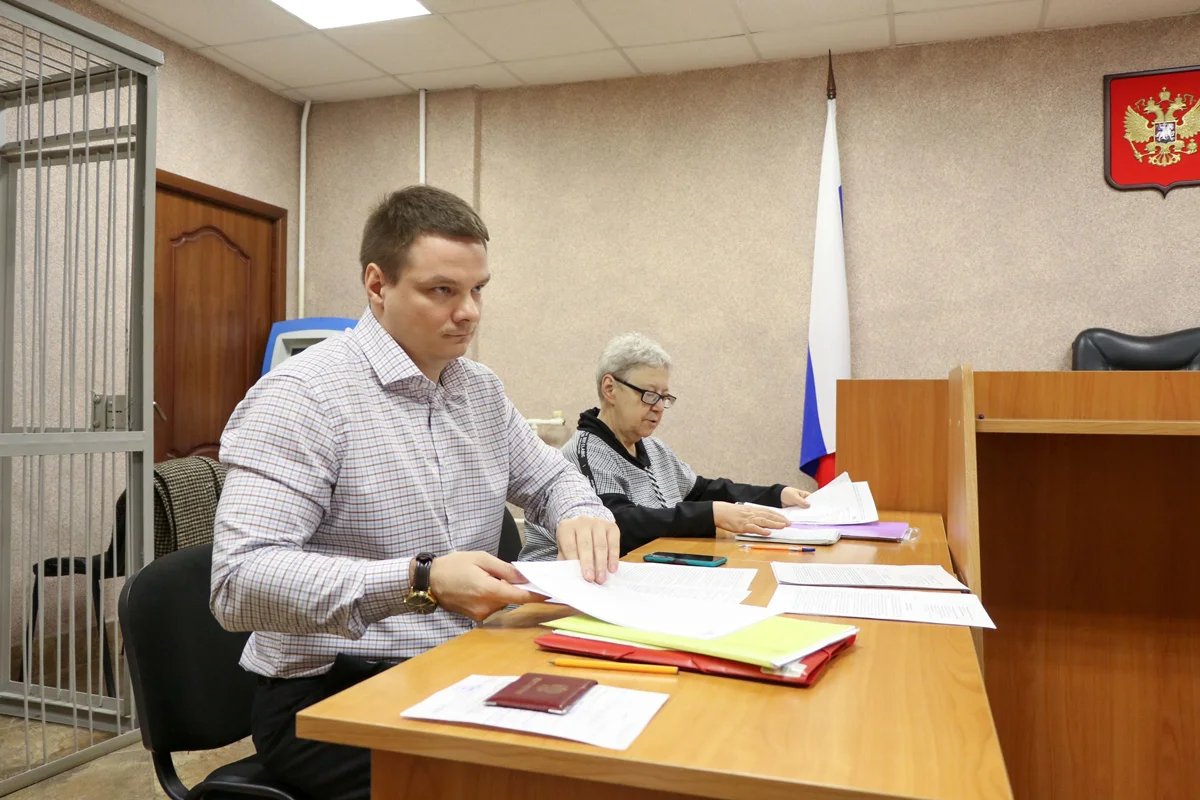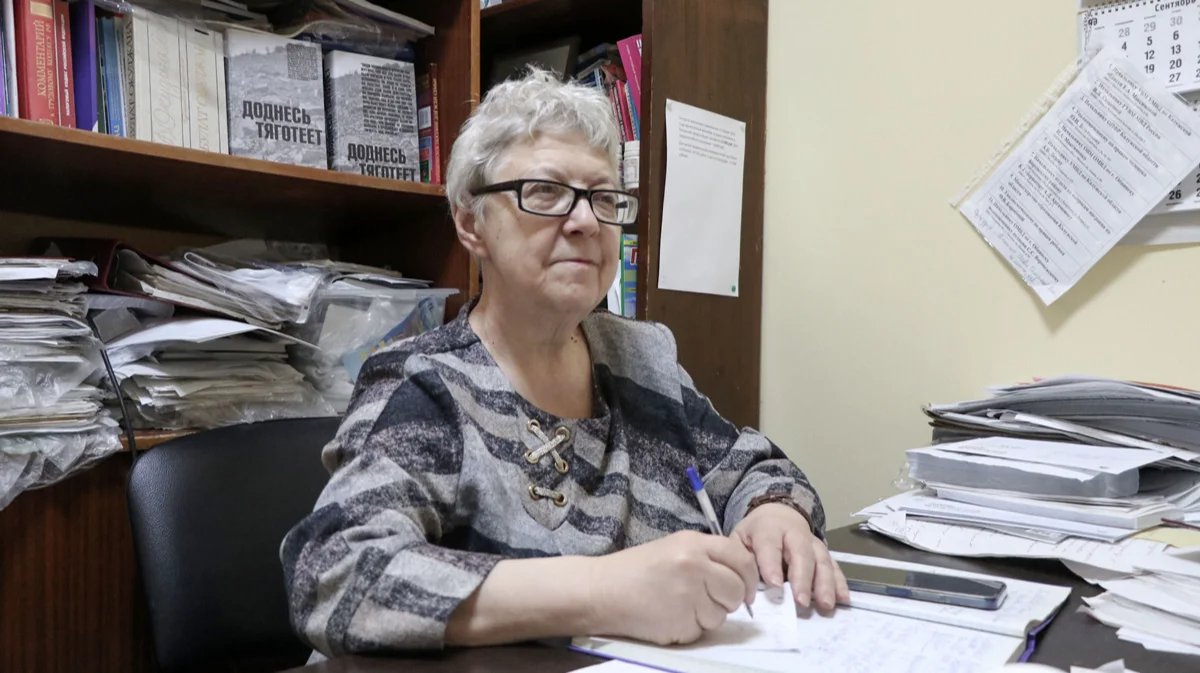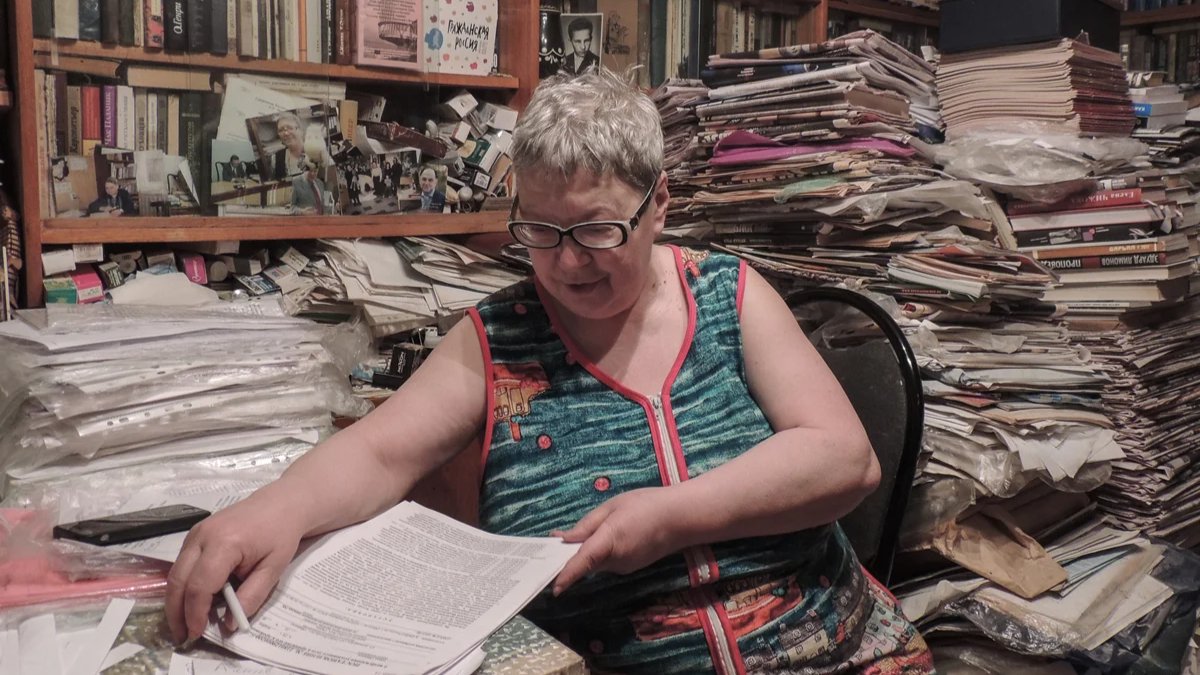Tatyana Kotlyar first found herself at odds with the state in the early 1980s, when she and her philosopher husband, Anton Neverovsky, began raising funds to support Russian dissidents and delivering books and food parcels to those who had been imprisoned for their criticism of the moribund Soviet government.
Perhaps unsurprisingly, it wasn’t long until news of the couple’s activities reached the ears of the all-powerful KGB, which sent officers to search their home and confiscate Neverovsky’s writing in 1982.
Having fallen afoul of the Soviet intelligence apparatus, Kotlyar was soon fired from her job at a prestigious scientific research institute and was forced to travel large distances each day from her home town of Obninsk, in central Russia’s Kaluga region, to teach in a remote school until Mikhail Gorbachev’s reforms began to get underway in earnest.
It was during those years that Kotlyar became a committed pro-democracy activist, however, organising rallies in support of one Boris Yeltsin, who, following comments he made criticising both Gorbachev’s leadership and the slow pace of reform, had just been fired from his job running Moscow.

Boris Yeltsin (L) and Mikhail Gorbachev in Moscow, 4 September 1991. Photo: EPA-EFE / VASSILI KORNEYEV
Through her activism, Kotlyar met human rights activist Lev Ponomaryov and played a central role in the creation of the Democratic Russia Movement, which went on to become the biggest political organisation in Russia by the early 1990s and formed the bedrock of Yeltsin’s political support.
In 1994, Kotlyar was elected to serve in the Obninsk City Assembly, a position she threw herself into with heart and soul, helping military veterans to secure the benefits they were due and advising conscripts to apply for civil rather than military service to avoid being deployed to Chechnya.
It was at this time that Kotlyar’s son, Dmitry Neverovsky, discovered that his mother’s activism meant he had a target on his back. Having left his studies at the Obninsk Institute for Nuclear Power Engineering in protest at the war in Chechnya in 1995, when Neverovsky graduated from another institute in 1997, he was called up to do his compulsory military service. Despite applying to do civil service as his mother advised, however, his request was ignored by the draft committee, which also failed to respond to a complaint he subsequently filed.
His refusal to serve in the military led to criminal charges being pressed against him in late 1999, and he began the new millennium with a two-year prison sentence, though his sentence was widely condemned and the European Parliament adopted a resolution calling for the case to be reviewed.
Neverovsky was released shortly afterwards, though, as his conviction was overturned by a court in Kaluga in February 2000. However, just over a year later, tragedy struck when he died in a fire at the family home from which both Kotlyar and her husband managed to escape. While the insurance company blamed the freak house fire on a short circuit, Kotlyar readily concedes that her son’s death may well have been due to arsonists attempting to intimidate her into remaining silent.

Tatyana Kotlyar in court with her lawyer. Photo: Tatyana Kotlyar
Refusing to allow the tragedy to break her, Kotlyar continued to work tirelessly in Obninsk during the early 2000s, becoming a well known face in the city. “Obninsk is fairly small and, basically, everyone knew where to go for help if something went wrong,” Kotlyar told independent Russian media outlet Bereg in 2023. “People voted for me anyway, despite the smear campaigns against me.”
Following her time in the city assembly, Kotlyar won a seat in the Kaluga region’s Legislative Assembly, where she chose to focus on the issue of migration. One of the proposals she made to the regional governor was the introduction of a program to help repatriate ethnic Russians who by a twist of fate happened to have been living outside the country’s borders following the collapse of the Soviet Union in 1991, in many cases disqualifying them from becoming Russian citizens.
Kotlyar now admits that “looking out for the most disadvantaged members of society” may have “irritated some people who might have previously voted for me.”
After completing her second term in the Kaluga region’s Legislative Assembly in 2009, Kotlyar attempted to win re-election to the Obninsk City Assembly, but later explained to Bereg that suspected her work “looking out for the most disadvantaged members of society — migrants, Roma, former prisoners — and helping them formalise their residence status and find jobs” may have “irritated people who might previously have voted for me.”
Though no longer an elected official, Kotlyar continues to work hard for migrant workers and other foreigners living in Russia, either by filing legal complaints on their behalf or by allowing them to register as residents at her home address.
“Without an official address, even Russian citizens can have difficulty exercising their rights,” she explains. “I was once approached by a homeless person with HIV. He had lost his old ID, and the new one had been issued without a residence permit, meaning he could not access the medical treatment he needed.”

Tatyana Kotlyar. Photo: Tatyana Kotlyar
Registering both foreign citizens and Russians at her home since the early 2010s has proved costly, however, and Kotlyar has been repeatedly fined and charged with the “fictitious registration of a foreign citizen or stateless persons” seven times since it was made illegal in 2013.
In July 2022, the European Court of Human Rights (ECHR) awarded Kotlyar €6,000 in compensation after finding that the Russian courts had violated Article 7 of the European Convention for the Protection of Human Rights, which bans the punishment of individuals who have not broken a specific law.
In addition to the seventh criminal case, 2024 also saw Kotlyar banned from registering over six people in one of her apartments, and over five in the second. The Prosecutor’s Office said Kotlyar’s “criminal activity” posed a threat to national security, noting that she had registered a total of over 10,000 people in her two apartments over the years, which effectively prevented the security services from monitoring their whereabouts.
Kotlyar suddenly found herself in the national spotlight in July, when Oscar-winning film director turned Kremlin shill Nikita Mikhalkov used his TV programme on state-owned news channel Russia-24 to launch a scathing personal attack against her.
“There are real human rights defenders, and others who hide behind that name,” Mikhalov said before ridiculing her inclusion by PeaceWomen Across the Globe in a list of 1,000 women it planned to nominate for the Nobel Peace Prize. “For what? For providing migrants with fake registrations?”, Mikhalkov added.
Refusing to be intimidated by Mikhalkov’s fame and influence, Kotlyar responded by calling his ad hominem attack “unprofessional” and asked why he, as a self-declared journalist, had not made any effort to contact her to hear her side of the story, adding that had he done so, she would have told him “that 90% of the people I register are ordinary Russians who don’t have a home of their own.”
Kotlyar’s current main concern is a new law that bans schools from enrolling the non-Russian speaking children of migrants workers.
Undeterred despite the smear campaigns, legal cases and official harassment that impedes her work, Kotlyar nevertheless continues to provide whatever assistance she can to those on the margins of society, with the issue currently concerning her the most a new law that bans schools from enrolling the non-Russian speaking children of migrants workers, one of the many initiatives that came about amid a surge of xenophobia that followed the March terror attack on Crocus City Hall outside Moscow.
“The constitution states that education is universal, free and compulsory, and that applies equally to Russians, foreign citizens and stateless people,” says Kotlyar, clearly riled up.
“Attempting to deprive children of an education” was, Kotlyar stresses, the stupidest thing the authorities could have done, as "the lives of thousands of people will quite simply be ruined.”
Join us in rebuilding Novaya Gazeta Europe
The Russian government has banned independent media. We were forced to leave our country in order to keep doing our job, telling our readers about what is going on Russia, Ukraine and Europe.
We will continue fighting against warfare and dictatorship. We believe that freedom of speech is the most efficient antidote against tyranny. Support us financially to help us fight for peace and freedom.
By clicking the Support button, you agree to the processing of your personal data.
To cancel a regular donation, please write to [email protected]

